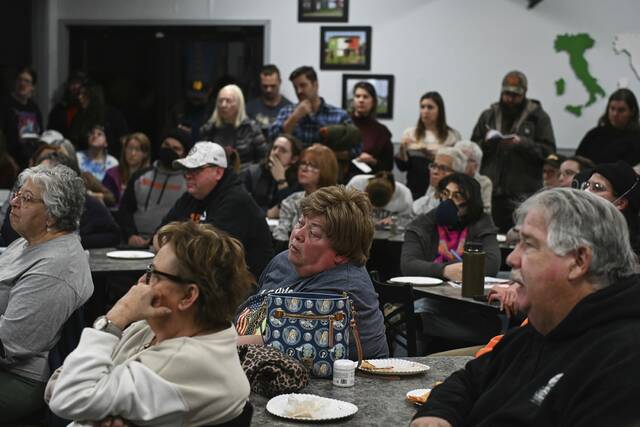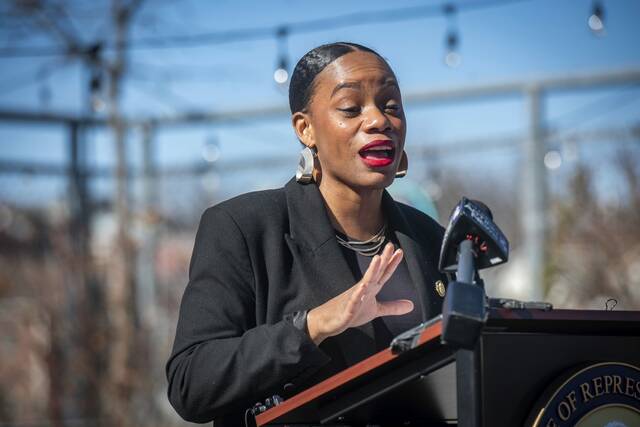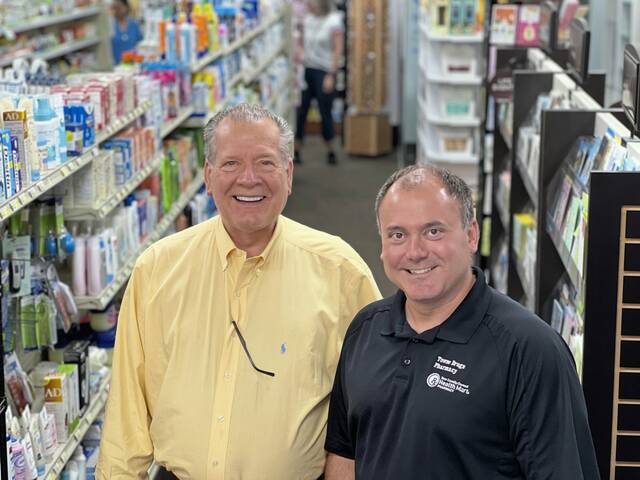Pittsburgh City Council members on Monday met with outreach workers to discuss possible solutions to help quell the uptick in homicides and protect the city’s youth.
“We’re attempting to treat this disease of violence,” said Taili Thompson, director of Operation Better Block’s Violence Prevention Initiative.
Thompson and others who are engaged in violence prevention work told city leaders the key is a comprehensive approach that includes outreach workers building relationships with at-risk individuals, resources available for poor communities and safe places for the city’s youth.
The city has already invested millions in programs meant to curb violence, including in the Group Violence Initiative and Stop the Violence Grants, Councilman Ricky Burgess said. Mayor Ed Gainey in June unveiled his Plan for Peace, which looks to further much of the work the city has been doing in trying to curb violence.
“We have now this comprehensive approach to violence reduction, a far cry from where we started,” Burgess said.
Yet Pittsburgh has already seen about 25% more homicides this year than last year.
“There’s a lot of work left to be done,” said Jay Gilmer, the city’s Stop the Violence coordinator.
Truly addressing violence will require a “total community effort,” he said.
His initiative at Operation Better Block is a data-driven model that tries to determine what kind of help a community needs. They work with law enforcement to try to bring in a police presence “before something actually happens” in areas where there seems to be an increased risk of violence, he said. That pairs with outreach workers who are in the community offering support and a variety of resources ranging from housing help to employment assistance.
Outreach workers each week issue a risk assessment for each city neighborhood to help focus efforts where they’re needed most. He cited as an example Northview Heights, which is currently ranked at a risk level of 4 with 12 active cases and 17 referrals in the last 30 days. In Homewood North, he said, there are 20 active cases his outreach workers are tackling and there have been 71 referrals in the last 30 days.
Thompson said, their analyses have led outreach workers to suggest additional outreach for a neighborhood on 189 occasions. There have been 162 instances where they’ve called for an increased law enforcement presence.
Outreach workers are working around the clock, and they deploy to crime scenes, hospitals and the homes of families torn apart by gun violence, said Rev. Cornell Jones, group violence intervention coordinator for the city. They partner with city social workers and police.
Related:
• Pittsburgh's soaring homicide rate leaves officials baffled• Pittsburgh Mayor Ed Gainey unveils plan to combat city violence
Council members largely agreed that such initiatives seem to be beneficial, but more work needs to be done to stem the violence.
Councilman R. Daniel Lavelle said he’s set a goal to see a 25% decrease in homicides next year.
Burgess, however, suggested that these violence intervention programs are more of a long-term investment.
“This work can’t be judged in a year,” he said. “You have to make a commitment to the work over decades.”
Burgess pointed to systemic issues at play that can’t be fixed overnight. Some Pittsburgh neighborhoods, for example, have no gas stations, grocery stores or restaurants — and people there often feel a sense of hopelessness when they see so few opportunities and resources around them, Burgess said.
The pandemic exacerbated the hardships many Pittsburghers faced, he said. People lost their jobs and about half of Black small businesses failed, Burgess said. Kids were kept out of school, though some children had seen schools as safe places to avoid abuse at home and get a hot meal.
“And then we’re wondering what happened,” Burgess said.
Council President Theresa Kail-Smith also noted that police staffing levels are low right now, and questioned whether that may also be a contributing factor to the escalating violence. Officers don’t have as much time to build police-community relationships and launch their own outreach efforts when they’re so short-staffed, she said.
“I want to know what we can do differently,” Kail-Smith said.








